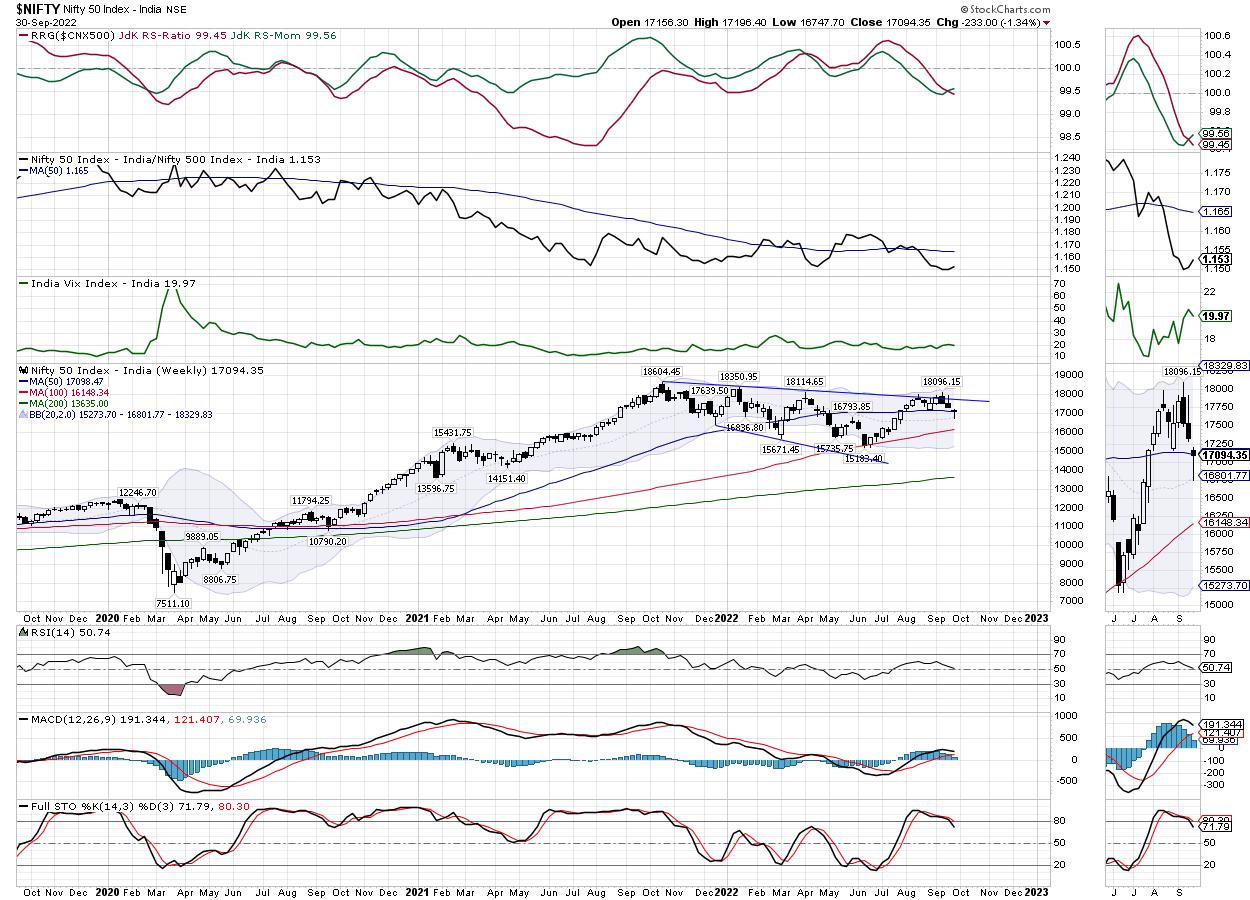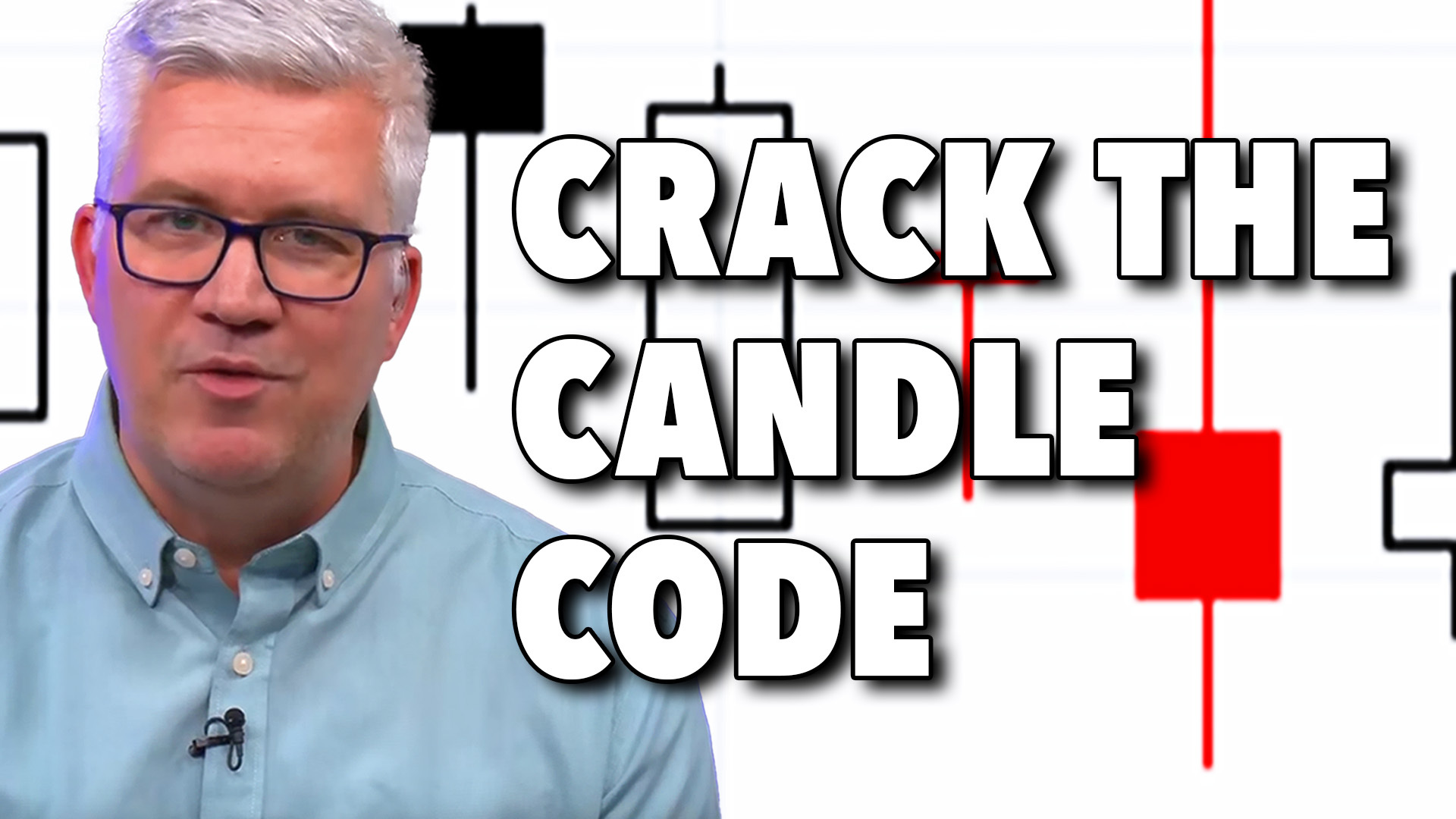Week Ahead: Markets May Stay Volatile and In a Range; These Sectors May Start Doing Better

In a week that was volatile for the Indian markets, the NIFTY50 index oscillated in a 448-point range before ending with a net loss. In the previous week, the NIFTY had closed above the 50-Week MA, which is presently placed at 17100; the index slipped below this point and bounced back to close very near to this level. In the previous technical note, it was mentioned that the markets have delayed their breakout; on the expected lines, they continue to resist and stay below the important falling trend line pattern resistance. After continuing to decline for the major part of the week and a strong short-covering led bounce back on Friday, the headline index still ended with a net loss of 233 points (-1.34%) on a weekly basis.
Friday was also the last trading session for the month. The NIFTY ended the month with a net loss of 664.95 points. On the long-term monthly chart, the index is seen consolidating in a broad and defined trading range of the 16000-18600 levels. The previous week has seen the index bouncing off the 20-Week MA, which is at 16801. This makes the level of 16801 an important support point for the markets on the weekly charts for the near future. The 20-Week MA is below the 50-Week MA; this indicates the loss of momentum in the present phase. The US markets have continued to stay weak; the S&P 500 has violated important supports. However, they now remain oversold as well.The volatility came down a bit; INDIAVIX declined by 3.04%. The coming week is likely to see the levels of 17165 and 17300 acting as resistance. The levels of 17000 and 16800 will act as potential supports.
The weekly RSI is 50.73; it remains neutral and does not show any divergence against the price. The weekly MACD is bullish and is above its signal line. A candle with a long lower shadow emerged on the charts. The occurrence of such a candle with a long lower shadow is also very close to being called a hammer, which is formed at the support level 20-Week MA. This adds credibility to this support point.
The pattern analysis of the weekly chart shows that the NIFTY has not achieved a breakout above the falling trend line pattern resistance; the index continues to trade below this pattern resistance with a corrective bias. This falling trend line is important; it begins at the lifetime high point of 18600 and joins the subsequent lower tops.
The coming week is again likely to see a bit of a jittery start, owing to the weak closing of the US markets. The S&P 500 has ended up violating an important support point of 3640; however, it also trades oversold at this juncture. It is recommended that one continues to trade the markets with a defensive mindset; this would mean keeping leveraged positions under control and also keeping the overall exposures at a modest level. Some good shows from the mid-cap universe cannot be ruled out, along with some selective outperformance coming from the pockets like IT, Pharma, Consumption, FMCG, etc. A careful approach is advised for the coming week.
Sector Analysis for the Coming Week
In our look at Relative Rotation Graphs®, we compared various sectors against CNX500 (NIFTY 500 Index), which represents over 95% of the free float market cap of all the stocks listed.
The analysis of Relative Rotation Graphs (RRG) shows a bit of a mixed sectoral setup as compared to the previous week. The NIFTY Midcap, Financial Services, BankNifty, PSU Banks and Realty Sector Index are inside the leading quadrant. However, they all appear to be taking a breather. They are likely to relatively outperform the broader markets, but their overall relative momentum is likely to slow down.
The FMCG, Consumption, and Auto groups continue to move inside the weakening quadrant.
On the other hand, all the indexes inside the lagging quadrant, like Energy, Pharma, IT, Media, Infrastructure and PSE index, are all showing improvement in their relative momentum.
The Metal Index continues to advance strongly while still inside the improving quadrant, along with the Commodities index.
Important Note: RRG™ charts show the relative strength and momentum for a group of stocks. In the above chart, they show relative performance against NIFTY 500 Index (Broader Markets) and should not be used directly as buy or sell signals.
Milan Vaishnav, CMT, MSTA
Consulting Technical Analyst




